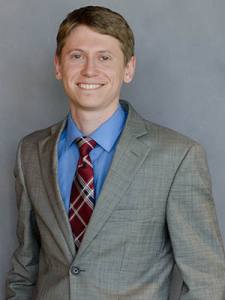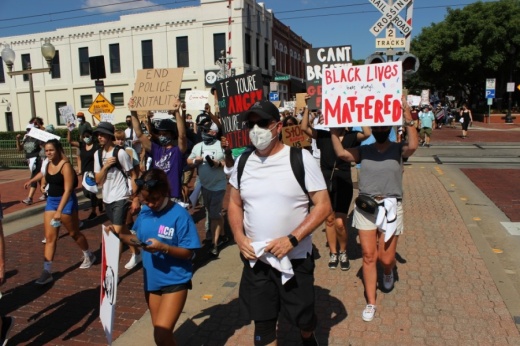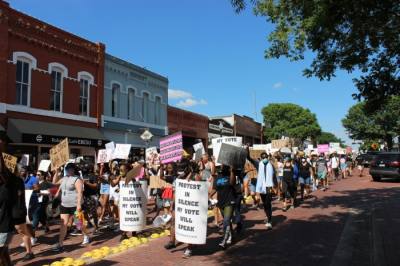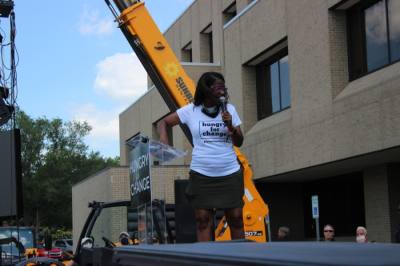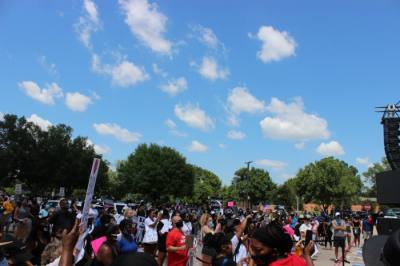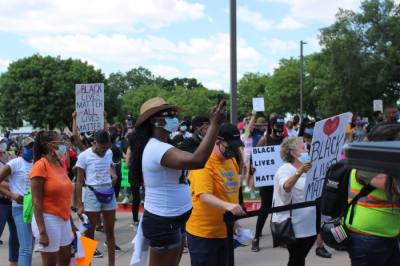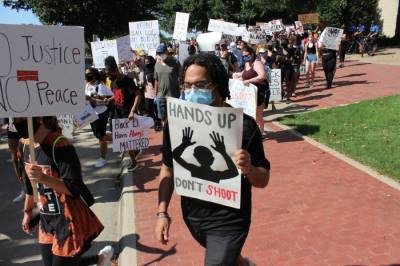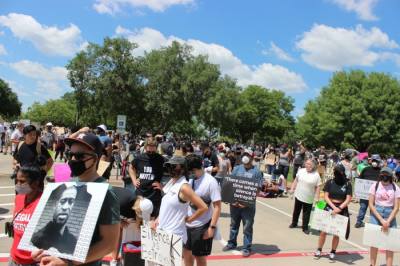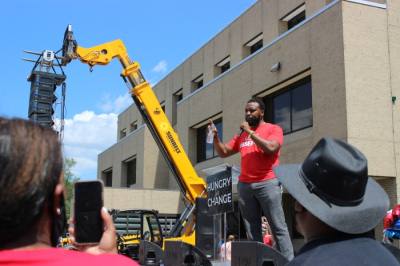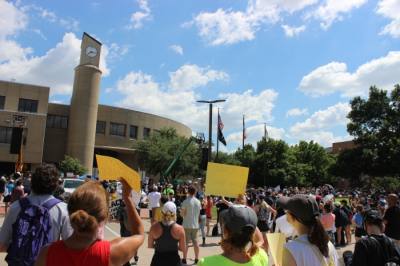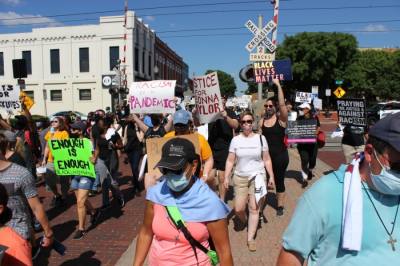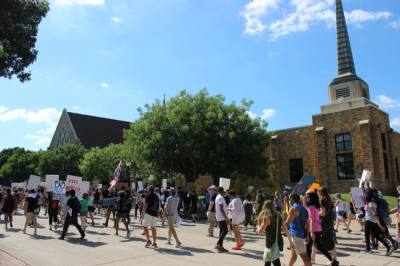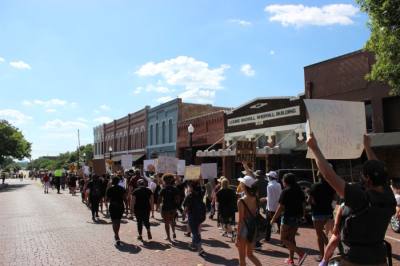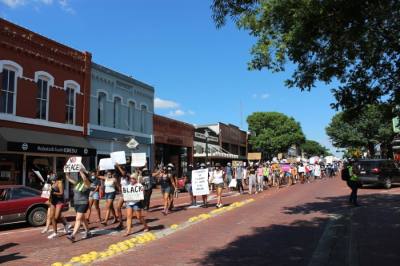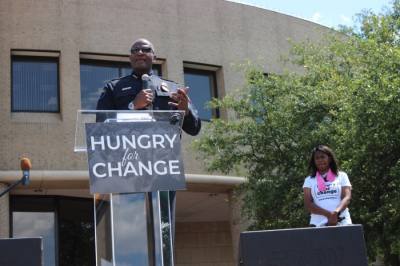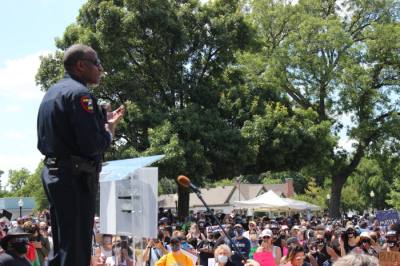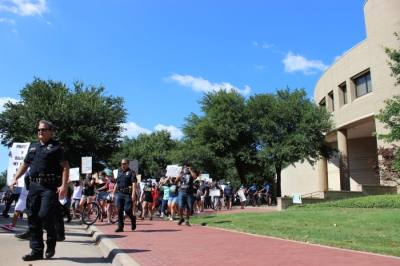It was the “most organic, purest moment” that organizer Cheryl Jackson can recall happening in her life, she said.
A week later on June 7, thousands filled the same grassy slopes and parking lots of the Plano municipal center, the seat of city government, calling for change to American policing practices.
As they marched through the streets of Plano’s historic downtown, protesters held up signs and called out names of black men and women who have died in police custody, including George Floyd in Minneapolis, Minnesota.
Plano has not been the site of any recent police violence. But Plano Police Chief Ed Drain said the department has implemented several policies in recent years pertaining to de-escalation that he hoped would help prevent any wrongful deaths in the future.
Speaking before the protesters June 7, Drain called the killing of Floyd a “criminal” act, but said he did not agree with calls from some protesters to disarm cops or reduce funding for police departments.
Another Plano resident with a prominent place in the national discussion about race spoke highly of the Plano Police Department, but said the power that police wield in their communities—and the numbers of killings that occur each year in the U.S.—make him uncomfortable.
“There is a fundamental problem with American policing that must be addressed,” Plano resident Lee Merritt said.
Merritt is also an attorney for the family of Ahmaud Arbery, who was fatally shot while jogging in Glynn County, Georgia, on Feb. 23. But no arrests in the case were made until video of the shooting went viral in early May. His death and the delayed investigation are part of a larger debate about racial equality.
“We exist in a moment right now where people all over the country are standing up,” Merritt said. “They’re using the name George Floyd, but they’re not [just] talking about George Floyd.”
Floyd was killed May 25 after being handcuffed and restrained face-down on the street by Minneapolis police. Officer Derek Chauvin’s knee was pressed against Floyd’s neck for 8 minutes and 46 seconds. Floyd became unresponsive and was later pronounced dead at a hospital.
Chauvin and three other officers on the scene—Tou Thao, J. Alexander Kueng, and Thomas K. Lane—were fired the next day. All four face criminal charges.
Jackson, who organized the June 7 protest in Plano, is the founder of Minnie’s Food Pantry, a nonprofit that provides meals and other resources to people in need.
She encouraged those who attended the protest to register to vote. She said she was not telling them to support a political party but to advocate for change within both parties.
In an interview a few days before the rally, she said she has experienced racism in Collin County on multiple occasions. Jackson recalled a time when her son came home from kindergarten in tears because the other children were taught the color black—which was also the color of her son’s skin—was an example of a “bad” color.
Jackson said the teachers didn’t intend for the color discussion to have any racial implications, and they quickly changed the example of a bad color after Jackson informed them what happened.
“It’s those little things that if we don’t speak out about it, it could have continued—who knows?” Jackson said. “You’re not going to find a lot of negative things [discussed] in Collin County. That could be a positive thing, but we still need to discuss [issues of race].”


